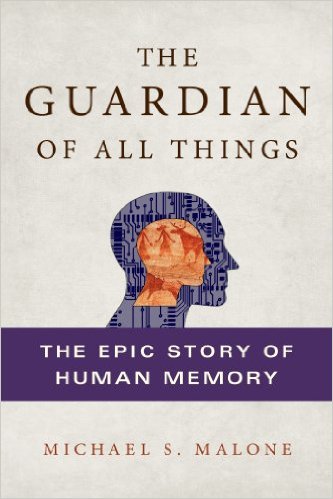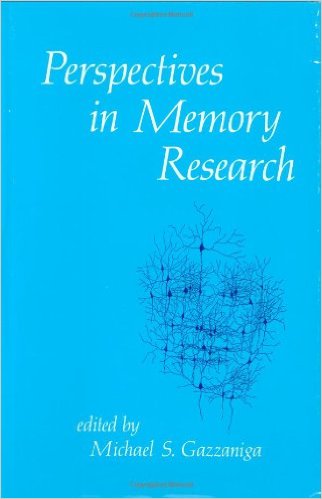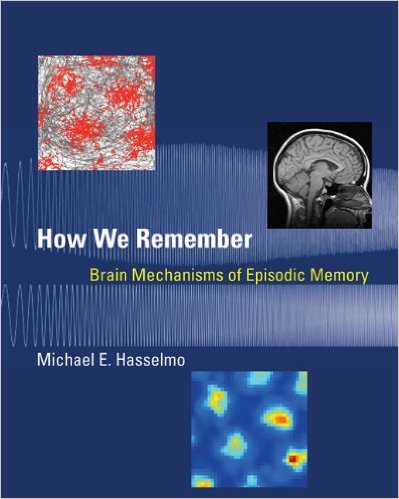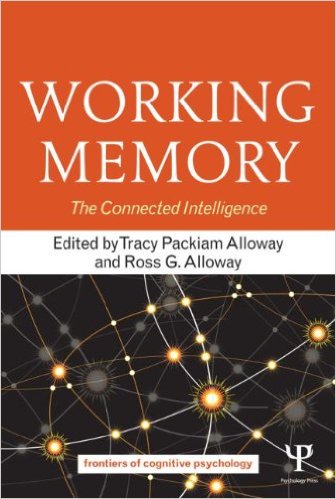Learning and Memory: Basic Principles, Processes, and Procedures (4rd Edition)
This text explores the core principles of learning and memory in a clear, reader-friendly style, covering animal learning and human memory in a balanced fashion. A strong emphasis on practical applications to the college student's everyday life is evident in examples throughout, such as the correlation between caffeine consumption and grade point average (Chapter 1), approach/avoidance coping for upcoming and completed exams (Chapter 5), and retrograde amnesia in football players (Chapter 7).
More info →The Structure of Long-term Memory: A Connectivity Model of Semantic Processing
How is information stored and retrieved from long-term memory? It is argued that any systematic attempt to answer this question should be based on a particular set of specific representational assumptions that have led to the development of a new memory theory -- the connectivity model.
More info →Thank You, Brain, For All You Remember. What You Forgot Was My Fault
This book explains what science reveals about how to improve everyday memory. Great for students, business people, and the elderly.
More info →The Guardian of All Things: The Epic Story of Human Memory
The Guardian of All Things is a sweeping scientific history that takes us on a 10,000-year-old journey replete with incredible ideas, inventions, and transformations. From cave drawings to oral histories to libraries to the internet, The Guardian of All Things is the history of how humans have relentlessly pursued new ways to preserve and manage memory, both within the human brain and as a series of inventions external to it.
More info →Perspectives in Memory Research
This exciting collection presents new empirical data and theories concerning the formation, the retrieval, and the integration of memory processes and, to some extent, tries to identify how studying memory processes might help augment learning and training procedures.
More info →Instant Expert: The Human Brain, Intelligence and Memory
It is written by Michael O'Shea, Linda S. Gottfredson, Jonathan K. Foster, leading professors in the fields of neuroscience, intelligence and neuropsychology, and edited by New Scientist to achieve an easy, accessible style. You will learn enough information on cutting-edge psychology and neuroscience to make you an “Instant Expert”.The 21st century promises great advances in our understanding of the brain. This book will ensure that you are never left behind.
More info →Foundations of Human Memory
Foundations of Human Memory provides an introduction to the scientific study of human memory with an emphasis on both the major theories of memory and the laboratory studies that have been used to test those theories and inspire their further development. Written with the undergraduate student in mind, the text assumes no specific background in the subject, but a general familiarity with scientific method and quantitative approaches to the treatment of data.
More info →Memory: A History (OXFORD PHILOSOPHICAL CONCEPTS)
This volume shows how the concept of memory has been used and appropriated in different historical circumstances and how it has changed throughout the history of philosophy.
More info →How We Remember: Brain Mechanisms of Episodic Memory
In How We Remember, Michael Hasselmo draws on recent developments in neuroscience to present a new model describing the brain mechanisms for encoding and remembering such events as spatiotemporal trajectories. He reviews physiological breakthroughs on the regions implicated in episodic memory, including the discovery of grid cells, the cellular mechanisms of persistent spiking and resonant frequency, and the topographic coding of space and time. These discoveries inspire a theory for understanding the encoding and retrieval of episodic memory not just as discrete snapshots but as a dynamic replay of spatiotemporal trajectories, allowing us to "retrace our steps" to recover a memory.
More info →Working Memory: The Connected Intelligence
In this volume, leading psychologists review the latest research on working memory and consider what role it plays in development and over the lifespan. It is revealed how a strong working memory is connected with success (academically and acquiring expertise) and a poor working memory is connected with failure (addictive behavior and poor decision-making).
More info →











